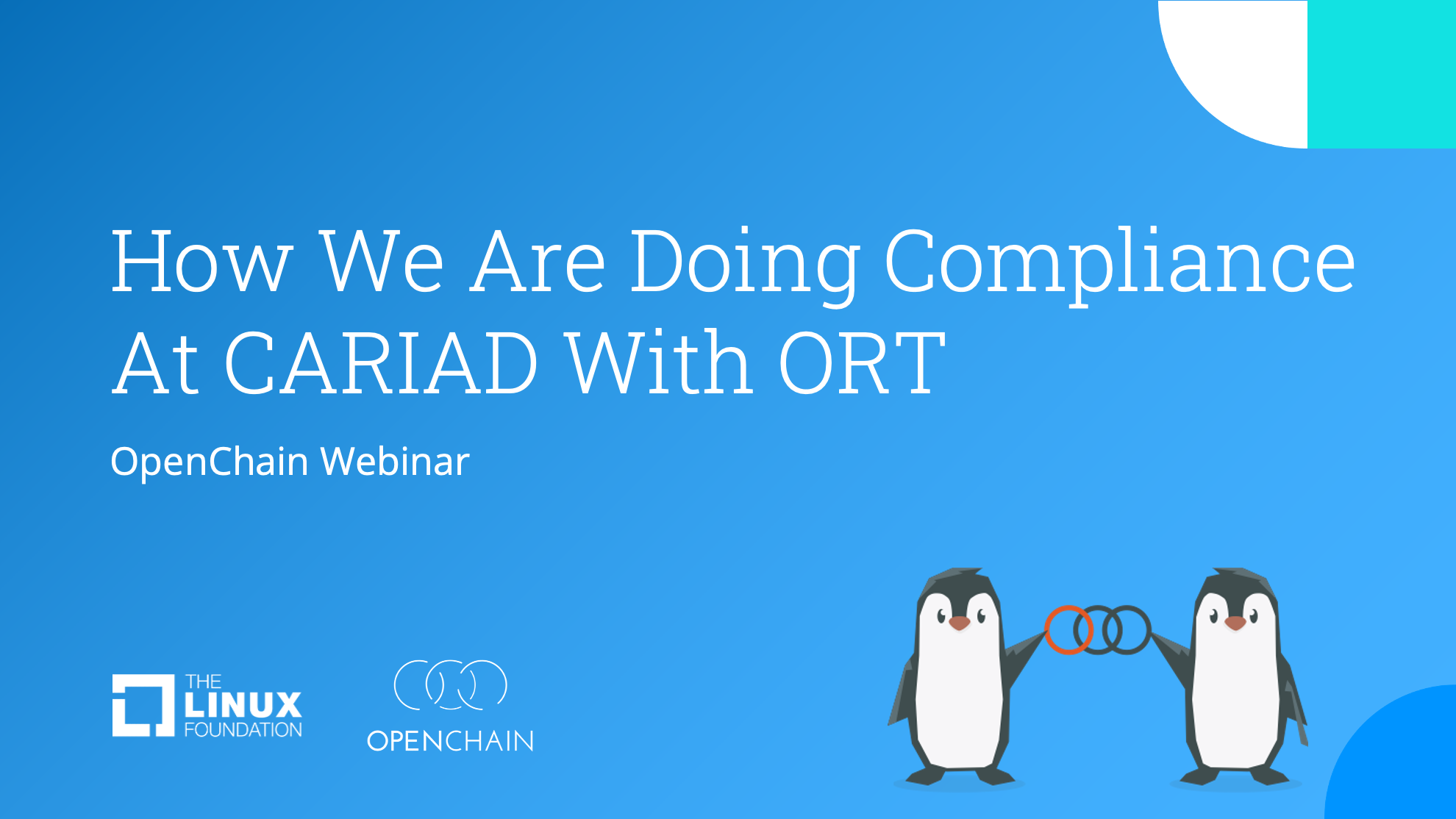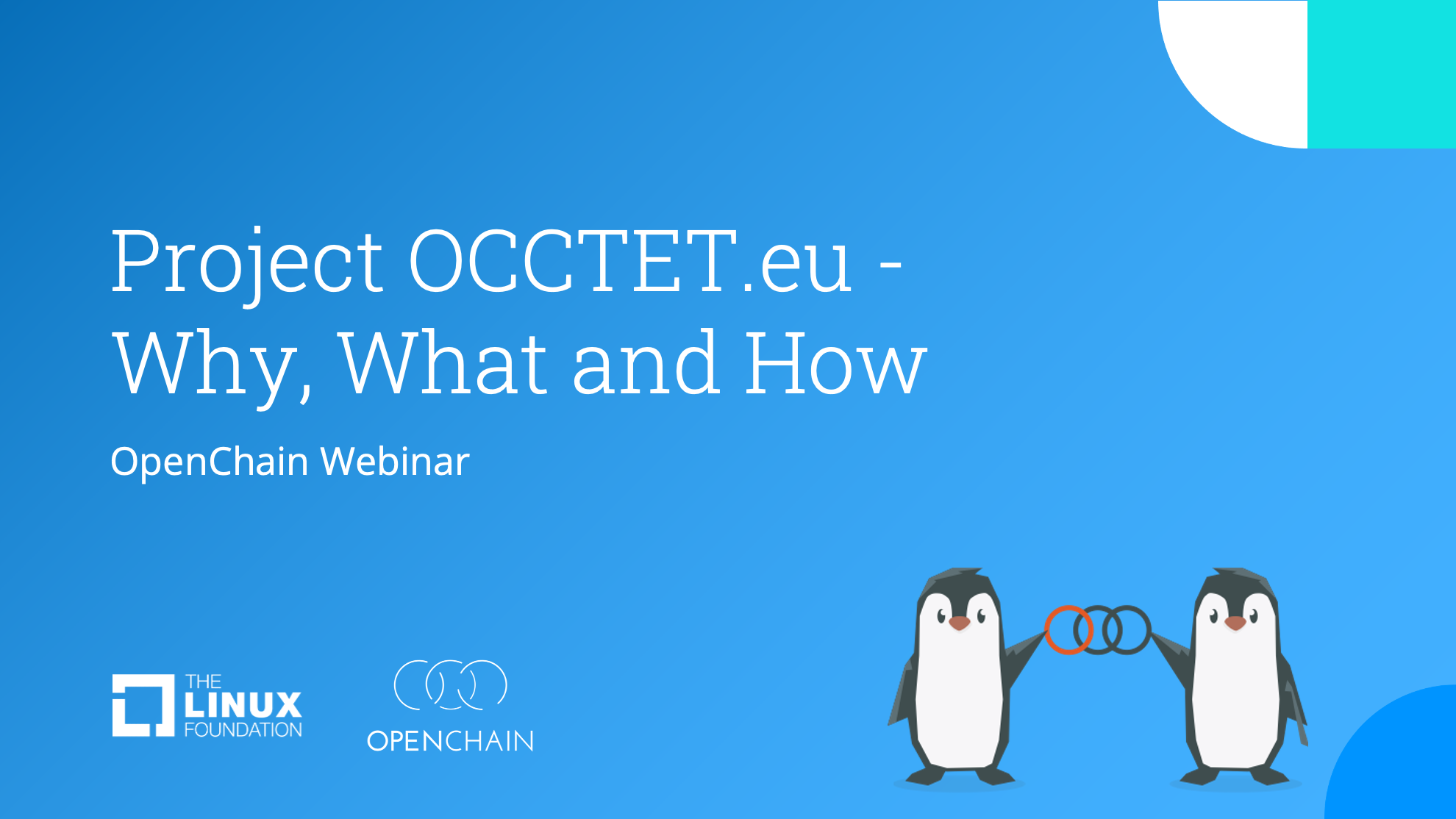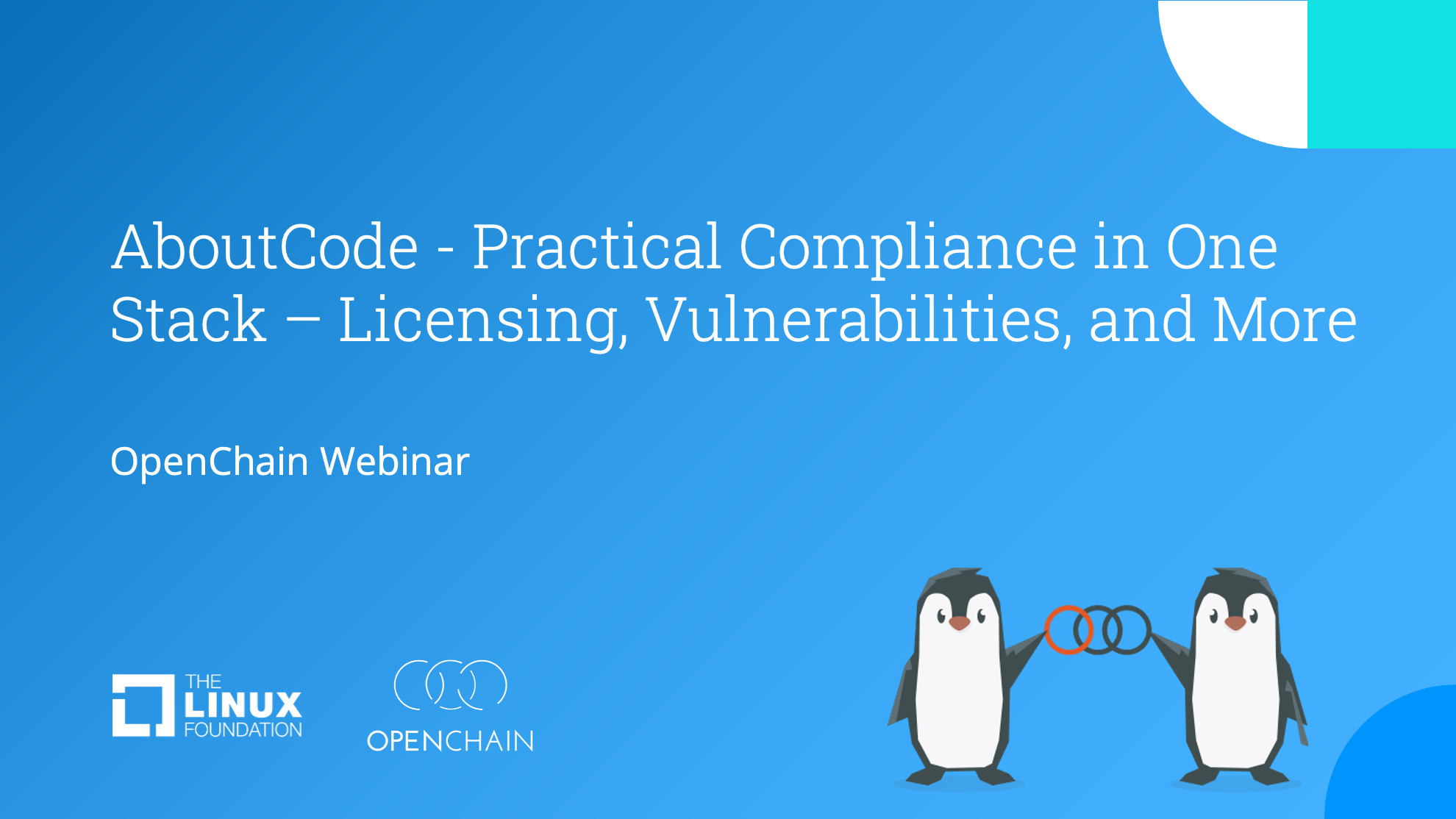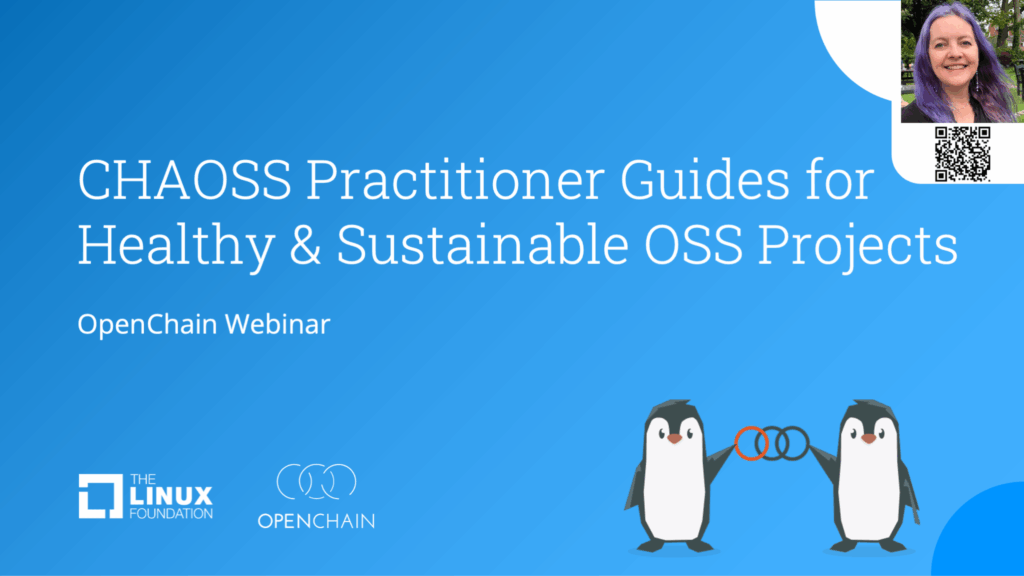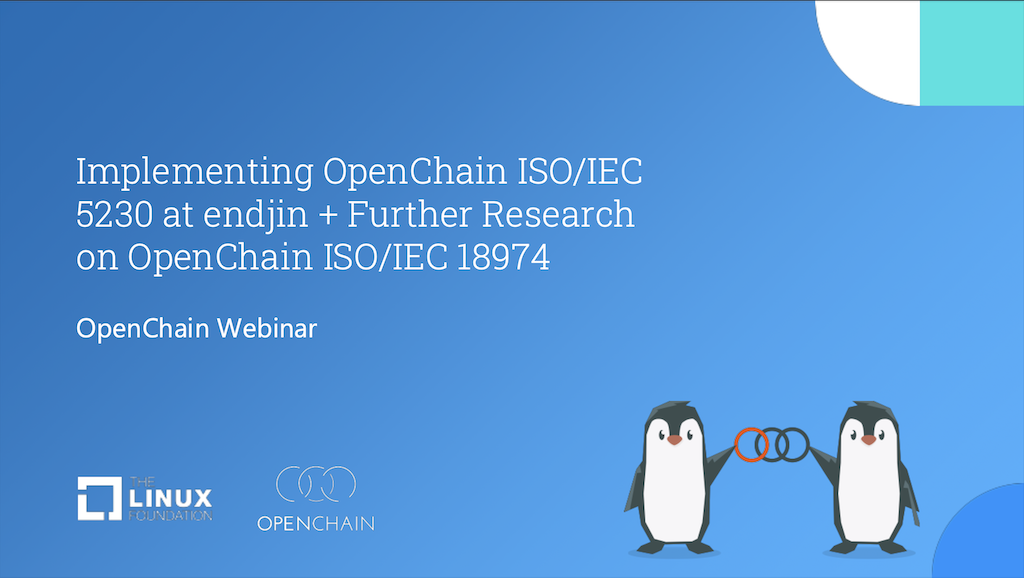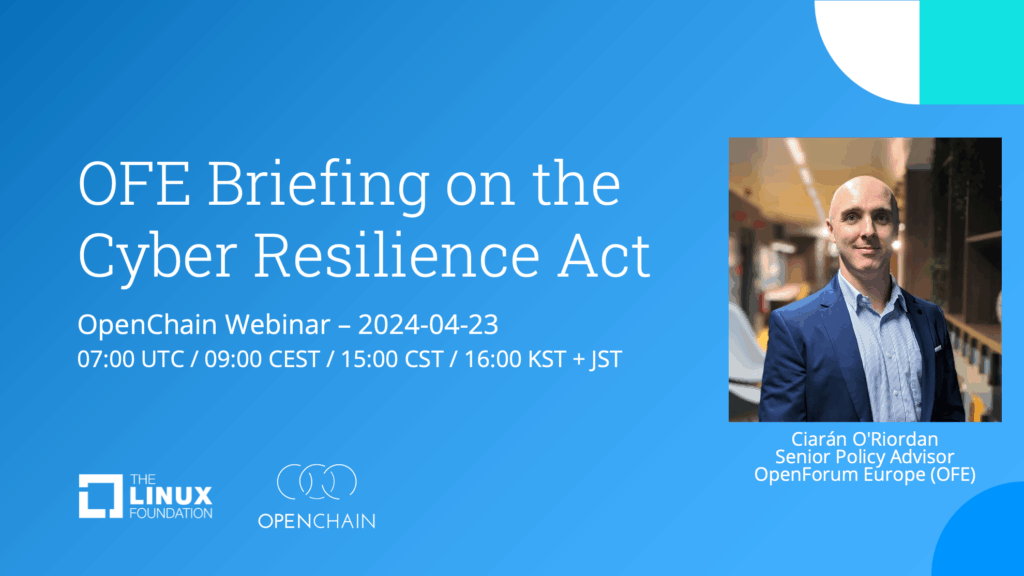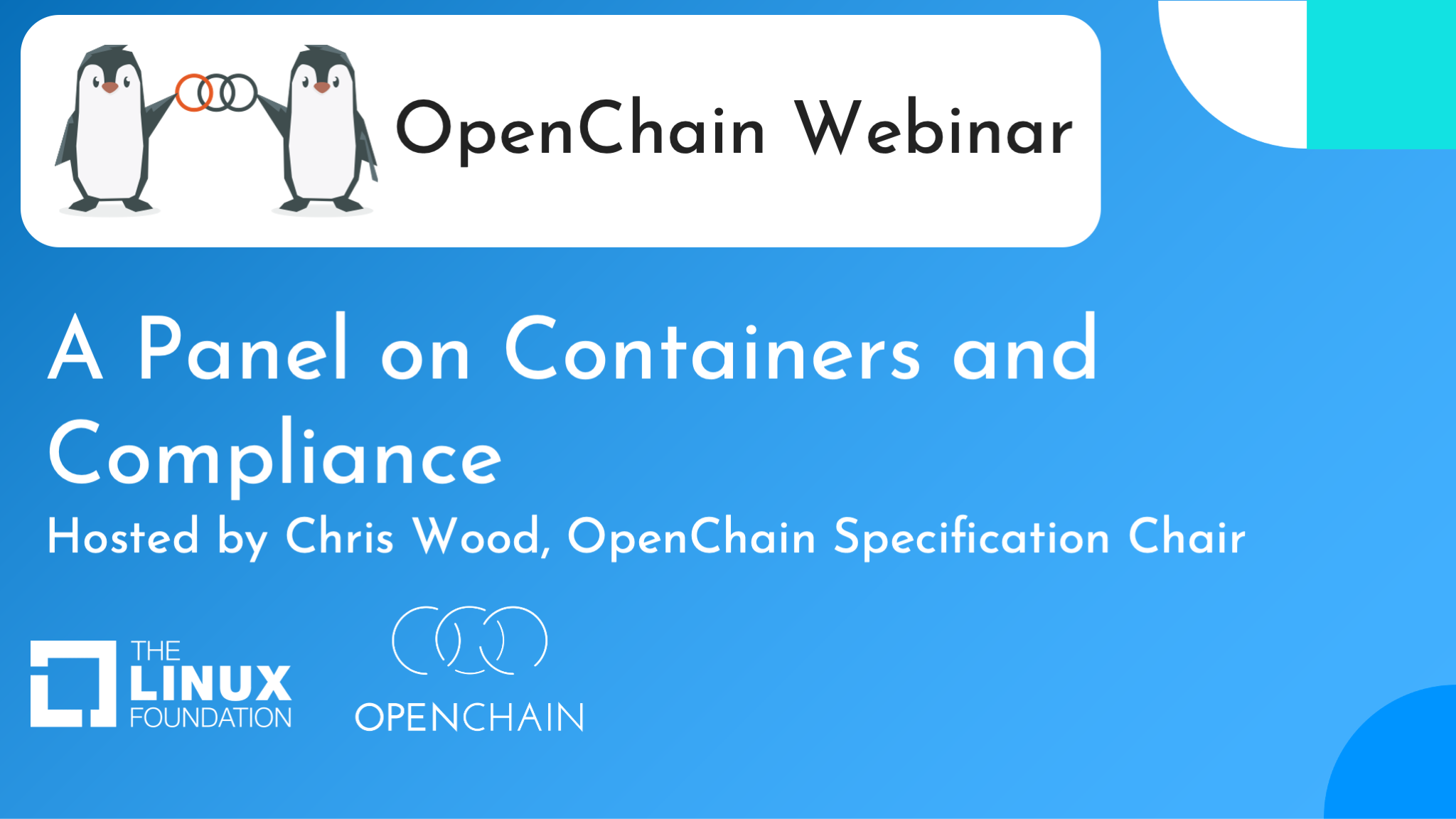
This was an exceptionally popular (over 50 attendees). Unfortunately, we had a recording mishap and are unable to bring you the full panel discussion. However, we are providing a summary below alongside the slides used.
Quick Recap
Our Panelists:
- Chair: Chris Wood
- Caren Kresse
- Heather Meeker
- Mary Hardy
- Till Jaeger
The meeting focused on discussing open-source containers, package managers, and compliance challenges, with panelists exploring issues around transparency, licensing information, and source code access. The group examined limitations in package manager information and binary scanning capabilities, discussing how incomplete or incorrect licensing data can hinder true compliance. The panel emphasized the importance of proper license declarations and developer awareness, while exploring potential solutions for addressing licensing issues in containerized environments and discussing the need for improved compliance automation tools.
Summary
Source Container Compliance Challenges:
The meeting focused on open-source containers, package managers, and compliance, with Chris chairing the discussion and introducing panelists including Karen from OSADL, Till, and others. Chris raised concerns about the transparency of package managers, noting that some widely used products lack sufficient licensing information and do not provide SBOMs or source code access, which may hinder true license compliance. The panelists were asked to share their thoughts on these issues.
Improving Open Source Compliance Tracking:
The panel discussed the limitations of package manager information for source compliance, with Caren, Heather, and Mary agreeing that package managers often provide incomplete, outdated, or incorrect licensing information. They emphasized the need to improve provenance tracking and source code analysis rather than relying solely on meta-information. Till explained that package managers can only use the information provided by open source projects, which is often insufficient. Mary noted a public database, ClearlyDefined, contains metadata for open source packages, including licenses discovered during scanning. It can be used as a reference during container content analysis. There is still some human curation for packages that have missing top-level license information, but at least it only needs to be completed once. The group also addressed the limitations of license scanners, noting that many only analyze the top-level license of binaries, which may not reflect the true complexity of the software’s licensing structure.
Binary Scanner Limitations and Potential:
The group discussed the limitations and potential of binary scanners in identifying licensing information. Caren emphasized the need for binary scanners to trace the origin and build information of binaries to extract licensing details, while Heather highlighted the evolution of scanning tools from line-by-line source code analysis to higher-level scans, noting a potential resurgence in detailed scanning due to AI coding tools. Mary mentioned ongoing experiments using AI to improve the detection of binary origins, and Till explained the convenience of binary scanning for large dependency trees but stressed the need for source code for comprehensive compliance. Florian raised concerns about relying solely on third-party binary scanning for compliance, and Stefan questioned the discrepancies in license declarations between Maven and GitHub, which Caren and Till acknowledged as a challenge due to incomplete or outdated meta-information.
Software Licensing Awareness and Management:
The panel discussed the importance of proper license declarations in software development, emphasizing the need for awareness training among developers to ensure accurate declarations. They highlighted the role of configuration management in preventing issues related to incorrect licensing, with Marcel explaining that the default Apache license in Maven requires explicit changes for different licensing. The group also addressed the limitations of binary scanning in identifying license information, with Till suggesting a theoretical approach using a database to link source code and binary information. Chris raised a question about remediation options for non-compatible licenses in containerized environments, which the panel acknowledged as an open issue.
Container Licensing Compliance Challenges:
The panel discussed challenges in container and package manager compliance, focusing on how to address licensing issues when using non-modified binary formats. Heather noted that license disclosures for pre-built containers have improved over time, and suggested working with upstream sources for remediation, while Caren emphasized engaging with source projects to resolve licensing problems. The group agreed that developer awareness of licensing requirements is crucial, particularly for containers, and Till highlighted the importance of using compliant and trusted base images. The panel expressed hope for improved tools to automate compliance processes in the future.
Read the Slides:
More About Our Webinars:
This event is part of the overarching OpenChain Project Webinar Series. Our series highlights knowledge from throughout the global OpenChain eco-system. Participants are discussing approaches, processes and activities from their experience, providing a free service to increase shared knowledge in the supply chain. Our goal, as always, is to increase trust and therefore efficiency. No registration or costs involved. This is user companies producing great informative content for their peers.
Check Out The Rest Of Our Webinars
This OpenChain Webinar was broadcast on 2025-10-29.
